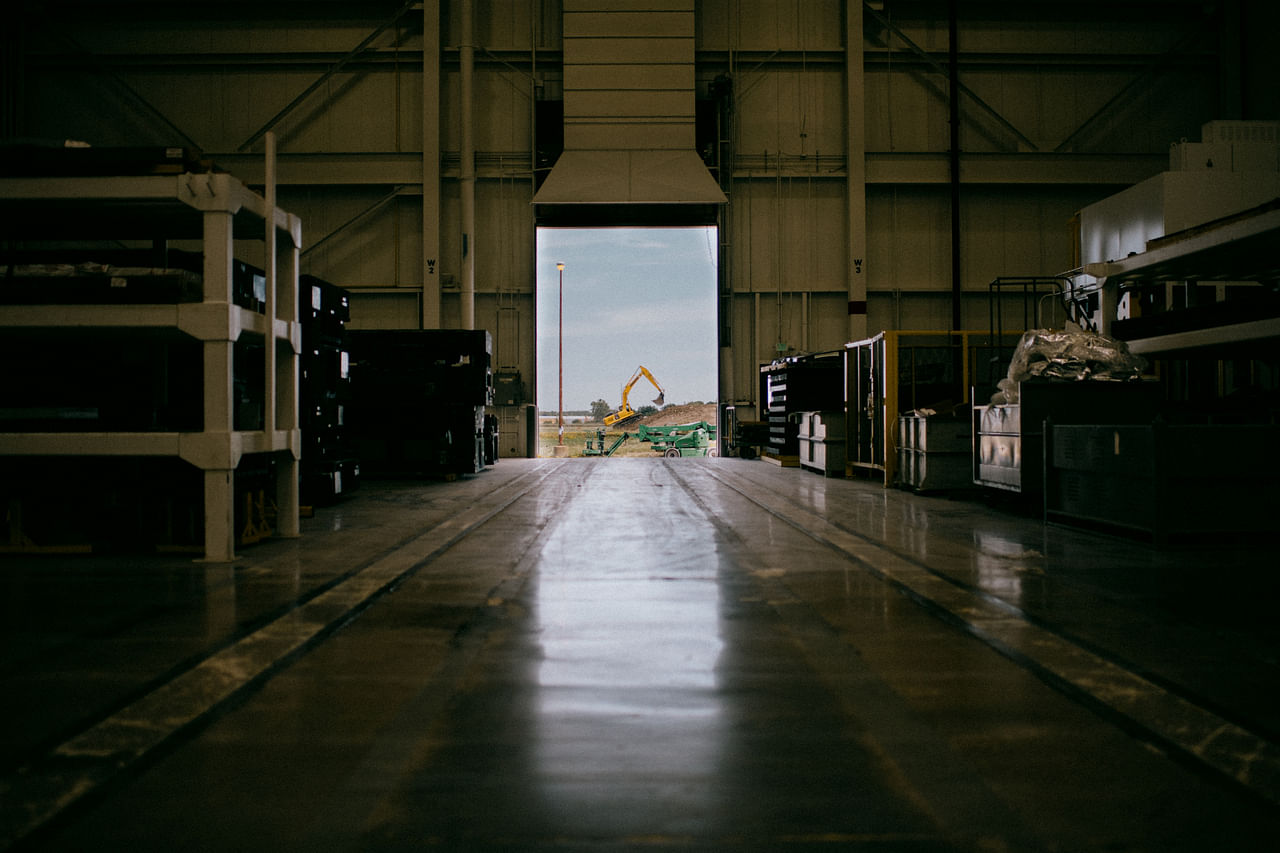ILLINOIS (NYTIMES) - When he bought a construction contractor called Weber Electric in 2018, Mr Josh Mosier inherited about 20 employees.
By the end of the following year, he was up to about 100 employees. By early this year, the number was more than 225.
"Because of this boom," said Mr Mosier, whose company often works on large building projects, "we've grown exponentially".
The epicentre of that boom is an electric-vehicle-maker named Rivian, which brought in Weber Electric and others in the town of Normal in Illinois to work on the city's costliest construction project in decades - a massive auto plant.
As it prepares to deliver its first electric pickup trucks and sport utility vehicles this year, Rivian has spent about US$1.5 billion (S$2 billion) renovating and expanding a factory once owned by Mitsubishi.
On a typical day, the 3.3 million sq ft plant hosts several hundred construction workers alongside more than 2,500 workers employed by the company, which expects to eventually double its local headcount.
The effects are hard to miss in Normal and nearby Bloomington, a metropolitan area of about 170,000. Hotels are frequently booked up, pandemic or not; hundreds of housing lots are being developed; and many employers looking to hire a full-time plumber are basically out of luck.
"At Rivian, we've heard they're hiring a lot of licensed plumbers," said Ms Lori Stickling, who runs a plumbing company with her husband. "We've had a post up for months with no qualified candidates."
In recent years, makers of electric vehicles and their components, such as Tesla, Lucid Motors and Lordstown Motors, have collectively spent billions of dollars building or renovating factories in Nevada, Texas, Arizona and Ohio.
The challenges are enormous, given that few of these companies have brought a vehicle to market. But if some succeed, the impact could be many times greater than the thousands of manufacturing jobs they create directly.
They could transform places like Normal, a university town where high-paying blue-collar employment lagged until the late 1980s, when Mitsubishi partnered Chrysler to build a factory. The plant, which employed more than 3,000 at its peak, and its suppliers attracted workers from across central Illinois.
The resulting economic activity helped fill the city's coffers and fund redevelopment. When the plant scaled back production in the 2000s and closed in 2015, around the time of white-collar job cuts, Normal felt the pinch. Suppliers decamped and many workers left in search of new jobs.

Uptown, an elegant, brick-accented district with a restored 1930s theatre and a pair of suddenly too-big hotels, became a monument to the city's fading prosperity. Local politicians and business leaders embraced Rivian, which is based in California and has locations in other states, Canada and Britain, as a way to fill the vacuum.
But in a place that has endured such changes of fortune, residents can be forgiven for wondering how long today's good times will continue.
Electric vehicles require fewer workers to make than petrol-powered ones. And while Rivian's prospects appear strong - it filed for a public stock offering in August, seeking a valuation of roughly US$70 billion - the company could be overwhelmed by a growing list of competitors.

At some point, the spending spree will end and the local industry will rise or fall on whether Rivian can build a sizeable customer base. The initial froth is already dissipating. After reaching more than 200 employees earlier this year, Weber Electric is down to about 100.
"We kind of rolled it back a little bit," said Mr Mosier, adding that he hopes to add workers again as the plant green-lights more construction.
In this way, the electric-vehicle boom is something of a microcosm for the larger transition to a low-carbon economy. As governments and investors funnel hundreds of billions of dollars into green industries, there is certain to be an initial jolt. But will it last?
Hiring began in 2016, when Rivian kept on a handful of former Mitsubishi employees who had been maintaining the shuttered factory, but it has accelerated in the last 1 ½ years. The company hired about 100 people a week in June and July.
The ramp-up has made labour, already in short supply during the pandemic, even more scarce. A branch of the International Brotherhood of Electrical Workers, which has helped contractors like Mr Mosier staff up, says it has fully booked the roughly 280 licensed union electricians in the area.
To meet the demand, the union brought in a few hundred electricians from other parts of the country this year. A nearby community college started a programme this autumn to train electric-vehicle technicians, and Illinois State University, which abuts Uptown, is building an engineering school partly in response to Rivian.

According to the Census Bureau, in 2010, about 65 per cent of working-age people in the Bloomington-Normal area were employed, far higher than the national average of 57 per cent.
By the eve of the pandemic, however, the local employment rate had fallen just below the national average, which had recovered to about 60 per cent.
One contributor to the decline was the shuttering of the Mitsubishi plant, originally known as Diamond-Star Motors. The 2015 announcement blindsided workers, some of whom were hired only weeks before, and took a financial toll on veteran production workers, whose hourly pay had once been in the upper US$20s.
The closing also wiped out suppliers and squeezed local restaurants and retailers.
Around the same time, State Farm, whose headquarters is in Bloomington, was shrinking its local workforce. The real estate market wilted. In 2016, an auction company was preparing to sell the Mitsubishi plant in pieces.
After executives from Rivian came to scout equipment, the company's 38-year-old founder, Mr R.J. Scaringe, who has a doctorate from the Massachusetts Institute of Technology, decided the plant itself was the real find.
The company barely had a website, much less a product. When it asked for tax subsidies before it completed the US$16 million purchase, local government officials were not entirely convinced the company was for real.

Mr Mark Peterson, then the city manager, said they asked Rivian for a list, including names of board members and a photo of a prototype. The company responded to roughly half the requests, he recalled.
The city and other local authorities approved a package of tax abatements and grants worth up to US$4 million in any case, realising it had no other option for reviving the plant, but scepticism lingered.
In 2019, however, the company raised nearly US$3 billion from the likes of Ford Motor and Amazon, which also ordered 100,000 electric delivery trucks. That autumn, Rivian held a public curtain raiser in Normal for its US$70,000 trucks, which it says can accelerate to 60mph in about three seconds.
"To a lot of people in the community, it was the first solid touch they'd had with Rivian," said Mayor Chris Koosr. "There was a lot of excitement."
Workers at the non-union plant start at US$20 an hour and top out at US$23 after three years - less than what veteran workers earn at unionised plants owned by General Motors and Ford, but more than the typical wage in the Bloomington-Normal area, where most of the new hires have come from.
"I was about to start sending out applications," said Ms Becky Skeen, a long-time Mitsubishi employee facing limbo before Rivian hired her in 2017. "I was really grateful."
For the local economy, the suppliers attracted by Rivian may be as important, part of a virtuous circle that can pull in workers from the margins of the labour force.
A few could end up at a recently revived industrial park near the Rivian plant. More than a decade ago, Stark Excavating, a civil construction firm, took over an unfinished 500,000 sq ft structure there after the developer ran into financial problems.
But last year, Stark Excavating sold the building to a real estate investment firm, which finished construction and leased it to Rivian, then began work on a second 500,000 sq ft building that could be used by suppliers or Rivian itself.
"That's all attributable to Rivian - they're driving this town," said Mr David Stark, Stark's president. "It reminds me of when Diamond-Star Motors built that original car plant that was taken over by Mitsubishi. It's what made Bloomington-Normal grow."

